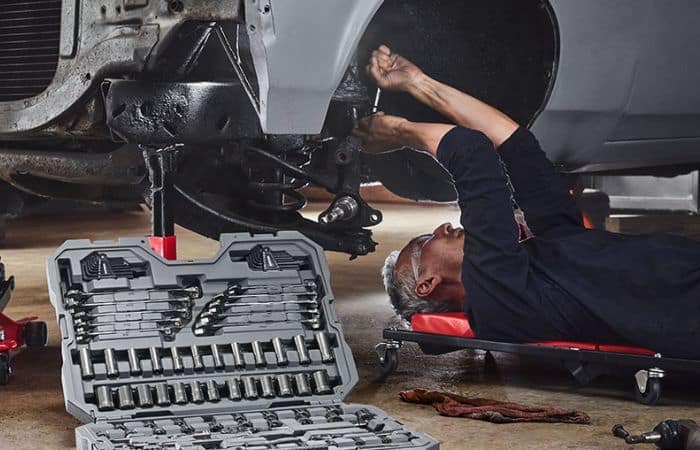In recent years, the automotive industry has witnessed significant transformations, led by advances in technology, changes in consumer preferences as well as an increasing focus on sustainability. These changes are not only reshaping the sales and service structures of cars. They are also influencing the equipment and techniques used in car maintenance.
Technological Innovations in the Automotive World
Currently, the automotive industry is undergoing a technological revolution, from electric vehicles (EVs) to autonomous driving capabilities, which has a significant impact on the automotive business. Dealerships are adapting to these changes by incorporating digital sales tools and virtual reality experiences, which allow customers to explore vehicles in detail without entering a showroom.
In addition, the rise of electric vehicles has prompted a change in inventory and service offerings. Traditional combustion engines are being replaced by battery-powered alternatives, which require new skills and tools for maintenance and repair. This transition is crucial for automotive companies to remain competitive and relevant in a rapidly changing market.
Sustainability and Regulatory Changes
Sustainability is another driving force reshaping the automotive field. With governments worldwide imposing stricter emissions regulations, the industry is moving towards more environmentally friendly vehicles. This shift affects not only vehicle manufacturers but also dealerships and repair shops, which must adapt to maintain and service newer, greener models.
Economic Factors Influencing the Automotive Sector
Economic fluctuations continue to influence consumer behavior and industry practices within the motor trade. The recent global economic downturn has led to increased demand for used vehicles, pushing dealerships to diversify their offerings and focus more on vehicle service and maintenance to bolster revenues.
What are the Best Tools for Car Maintenance?
As the automotive industry evolves, so does the toolkit required for an effective repair. Here are some essential tools that every automotive technician should consider:
- Socket Set: A comprehensive socket set is indispensable for almost every type of car repair. It should include a variety of socket sizes and types (e.g., standard and deep sockets) to accommodate different bolt heads and nuts.
- Wrench Set: Similar to sockets, wrenches are crucial for loosening and tightening parts. A set should include both combination wrenches (open-ended and box-ended) and adjustable wrenches for enhanced versatility.
- Screwdrivers: A selection of flat-head as well as Phillips-head screwdrivers in various sizes will be necessary for tasks ranging from removing car panels to adjusting small components.
- Pliers: Good-quality pliers—needle-nose, locking, or regular—are vital for gripping, bending, and cutting wire. In addition, a set of wire strippers and crimpers is practical for electrical repairs.
- Torque Wrench: To avoid overtightening and potentially damaging parts, a torque wrench is essential. It ensures that all bolts and nuts are tightened to the manufacturer’s specified torque.
- Multimeter: For diagnosing electrical issues, a multimeter can measure voltage, resistance, and current. This device is the ultimate solution for any work on the electrical system.
- Jack and Jack Stands: Safety comes first—never work under a car supported only by a jack. Jack stands are crucial for keeping the vehicle securely lifted while you work.
- OBD II Scanner: Modern cars are equipped with onboard diagnostics (OBD). An OBD II scanner can read diagnostic trouble codes (DTCs) from the car’s computer system, helping to troubleshoot problems.
- Inspection Light: Good lighting is essential, especially when working in hard-to-see areas. A durable, bright work light can make a significant difference.
- Mechanic’s Gloves and Safety Glasses: Finally, personal protection is paramount. High-quality, resistant mechanic’s gloves protect your hands, and safety glasses shield your eyes from harmful debris.
Facom automotive tools are highly appreciated for their precision, durability, and innovative designs. Known for their ergonomic features, these tools are engineered to provide superior comfort and safety, reducing the risk of injury and fatigue during long hours of use. Professionals worldwide appreciate this brand for its wide range of high-performance tools, which include everything from advanced torque wrenches to specialized automotive repair kits. That’s why they are a preferred choice among technicians who demand reliability and flawless results in their work.
Conclusion
The automotive sector, like the motor trade, continues to evolve, influenced by technological advances, economic factors, and global policies on sustainability. As these changes occur, the tools and strategies used in automotive repair also advance. Staying updated with the latest tools and technologies is crucial for anyone involved in the automotive repair industry, ensuring efficient and effective service in this dynamic field. This not only helps in keeping pace with industry standards but also ensures that customers receive the best service possible.







Leave A Comment